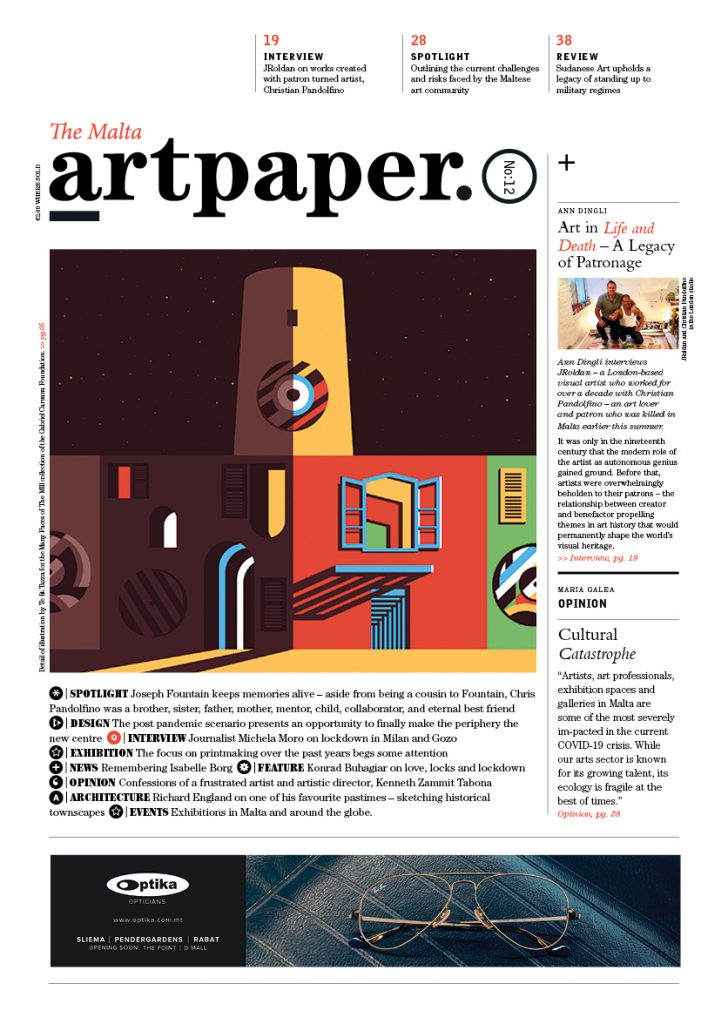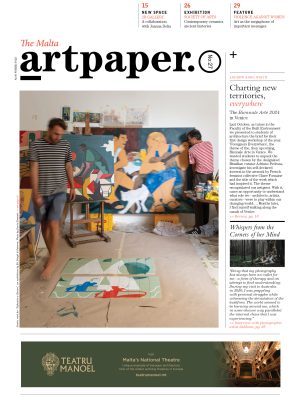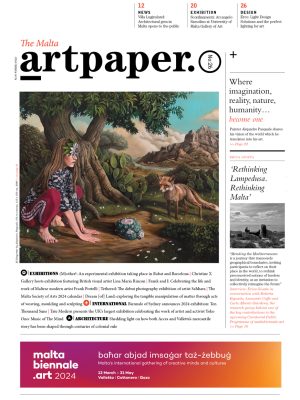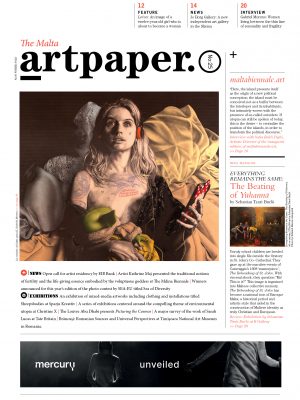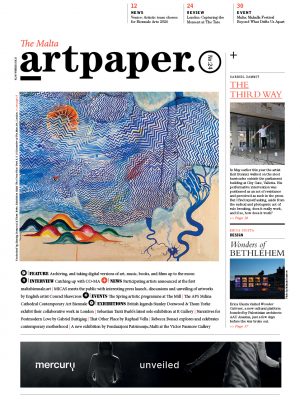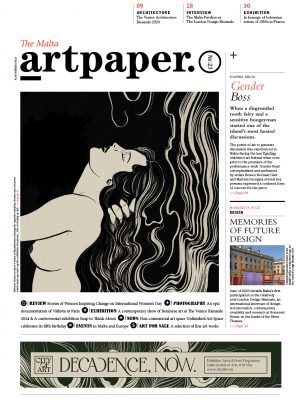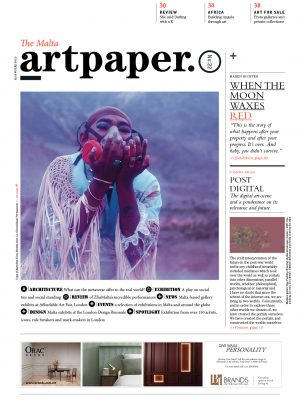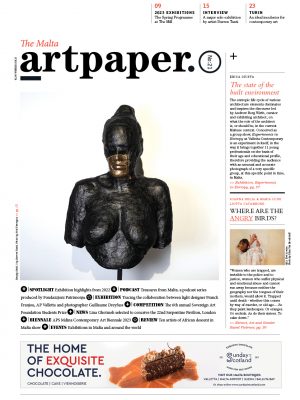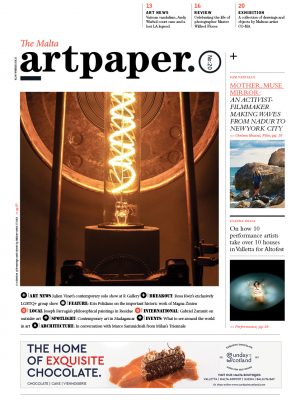As summer turns to autumn, and communities all over Europe face a second wave of a virus that has dominated 2020, questions around the future of art world and cultural enterprise feel more significant than ever. In Malta, artists and art institutions are at the precipice of an unknown future – one that is filled with far more questions than answers. Will independent artists be able to carry on working without financial aid? When will it be viable for galleries to function normally again, if ever? With limitations on social experiences, how will art’s subject-matter change and adapt to remain relevant and impactful to its audiences?
After years of efforts working towards propelling the local contemporary arts scene forward, lack of funding and deep ambiguity around the destiny of physical art spaces feels like a heavy shadow that is slow to shift. Yet, despite these insecurities, art remains a constant touchpoint for humane experiences. It represents the highest form of human expression, and therefore will not be extinguished easily. Issue 12 celebrates that persistence, and the enduring relevance of the art world during a time of global uncertainty.
Perhaps most poignantly, this issue looks at the legacy of an art patron whose life was ended prematurely earlier this summer. Christian Pandolfino’s fascinating relationship with the art world is explored in an interview between Ann Dingli and JRoldan – Pandolfino’s long-time artistic collaborator. He is also remembered in a tribute article by Joseph Fountain, his cousin and friend. Prominent artist Isabelle Borg is also remembered ten years after her death, in an homage article by Lisa Gwen Andrews that outlines Borg’s legacy and influence on the local art scene. Konrad Buhagiar contemplates the meaning and impact of love and locked doors, whilst Richard England returns to sketching as a meditative passtime.
Elsewhere, the issue looks at the art world’s persistent reckoning with the global pandemic and its effects on society. Erica Giusta questions the opportunity for a cultural and societal shift. Kenneth Zammit Tabona ponders the future of the theatre, and Michaela Moro speaks candidly in an interview about Malta’s urban development being at a crucial crossroads. All this, as well as the usual news and events rundown, is covered in this latest issue – a reminder that art will always be a weapon of solace, even in the most challenging of times.

